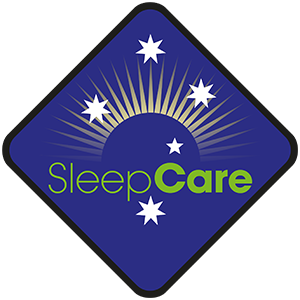Advice About Insomnia and Treatment in Brisbane
Insomnia is a term used when a person is concerned with their ability to sleep. As sleep can affect a number of elements in your everyday life, such as mood, memory, concentration and general wellbeing, it makes sense for individuals to determine the cause of their restlessness as soon as possible. If you are looking to see an insomnia treatment specialist in Brisbane, Sleepcare may be able to assist you. As a team of specialists who focus on sleep disorders, we have extensive knowledge of possible solutions to aid you to have restful night’s sleep.
Tips for those concerned about insomnia
Drugs
Avoid excessive caffeine, alcohol, nicotine, and hypnotic drugs.
Exercise
Regular early evening aerobic exercise followed by a hot bath or shower is healthy for sleep and the ability to cope with occasional sleep loss.
Wind down
Indulge yourself with at least 30 minutes of relaxing, quiet, pleasureable activity before lights out time.
Sleep timing
Maintain regular sleep and wake times appropriate for the required length of sleep. Optimum sleep period is centred over the low body temperature time which is governed by the body's internal clock – the circadian (24 - hour) rhythm. Exposure to strong light upon final morning wakening will stop the rhythms from drifting later. Sleep periods and rhythms that are too early may require strong evening light in addition to exercise to delay sleep to a more convenient time. Avoid daytime napping unless that is a preferred and convenient habit.
CPAP machines in Brisbane
One issue that can cause sleeping disruption is breathing difficulties throughout the night. CPAP uses a machine to maintain breathing and can assist users to get a better rest. For more information on CPAP, please speak to your sleep medicine specialist in our Brisbane clinic.
BE INFORMED ABOUT SLEEP
Brief nighttime wakenings about every 90 minutes are a normal part of the sleep pattern especially in older individuals. Sleep perception is inaccurate and sleep time is almost always greater than estimated. Night worries may be biological driven when awakening out of REM sleep. The primary cause of worry is biological rather than from the object of the worry. The biological arousal should dissipate over 10 - 20 minutes if not reinforced by a focus on the objects of the worrying thoughts. You have had an adequate amount of sleep if you function well the next day - free of tiredness and sleepiness. Some people need less than the average of 7.5 hours for adults.
CONTRIBUTING FACTORS TO INSOMNIA
- Poor sleep hygiene (bad habits like reading in bed)
- Too much noise and discomfort so you are too hot or there is has too much light
- Stress and anxiety
- Untreated medical and physical problems – depression, chronic pain, restless legs or sleep apnoea.
- Use of drugs (alcohol, caffeine, nicotine, sleeping tablets, etc.)
- Circadian rhythm abnormalities (a pattern of going to bed too early or staying up too late means that other nights it will be hard to get to sleep at a set time )
